Unlocking the Buzz: What Is Mushroom Coffee and Should You Be Drinking It? (A Complete Guide with Insights from Bazan Coffee)
As health-conscious consumers seek smarter ways to caffeinate, a new player has entered the spotlight: mushroom coffee. Combining adaptogenic mushrooms with ground coffee beans, this trendy beverage claims to boost focus, support immunity, and reduce caffeine crashes. But what is mushroom coffee really, and is it worth the hype compared to specialty-grade brews like Bazan Coffee?
This SEO-optimized, research-backed guide dives deep into the world of mushroom coffee—examining its ingredients, benefits, side effects, and real-world efficacy. We’ll also compare it to traditional specialty coffees.
What Is Mushroom Coffee?
Mushroom coffee is a blend of ground coffee and powdered functional mushrooms—usually in a 1:1 or 3:1 ratio. These mushrooms are not psychedelic but medicinal adaptogens, traditionally used in Eastern medicine.
Common Mushroom Coffee Ingredients:
-
Lion’s Mane – Supports cognitive function
-
Chaga – Antioxidant-rich, may support immunity
-
Cordyceps – Boosts energy and athletic performance
-
Reishi – Promotes calm and reduces stress
Most commercial mushroom coffee products use dual-extracted mushroom powder mixed with Arabica beans or instant coffee granules. The best formulations emphasize fruiting body extracts over mycelium for a higher concentration of active compounds.
What Is Mushroom Coffee Good For?
According to recent studies and consumer surveys, the most common reasons people drink mushroom coffee include:
-
Enhanced mental clarity (Lion’s Mane)
-
Better stress response (Reishi and Chaga)
-
Improved stamina (Cordyceps)
-
Balanced energy without jitters
Unlike standard coffee, mushroom coffee includes nootropic and adaptogenic compounds believed to moderate the effects of caffeine and improve brain function over time. For example, Lion’s Mane has been shown in lab studies to stimulate nerve growth factor (NGF) which may protect against age-related cognitive decline
Does Mushroom Coffee Have Caffeine?
Yes—but usually less than regular coffee. Most mushroom coffee blends contain 40–80 mg of caffeine per 8 oz serving, compared to the 95–120 mg in a typical cup of Arabica or 160–200 mg in Bazan’s Fine Robusta – Krong Năng.
Caffeine comes from the coffee bean portion of the blend. Some formulations even use decaffeinated coffee to eliminate stimulant effects entirely.
|
Coffee Type |
Caffeine (8 oz) |
|
Bazan Arabica (Cau Dat) |
90–110 mg |
|
Bazan Fine Robusta |
160–200 mg |
|
Mushroom Coffee (avg.) |
50–80 mg |
The idea is to deliver a smoother lift, rather than the sharp peak-crash cycle associated with high-caffeine coffees, making it ideal for sensitive drinkers.
Mushroom Coffee Benefits: What the Research Says
While many claims come from traditional medicine and brand marketing, emerging science supports the potential mushroom coffee benefits:
1. Brain Health (Lion’s Mane)
-
May stimulate NGF, improving memory and learning
-
Pilot studies show improved cognitive function in older adults
2. Immunity and Antioxidants (Chaga and Reishi)
-
Rich in beta-glucans, known to modulate the immune system
-
Chaga also offers melanin and polyphenols, boosting antioxidant defense
3. Energy and Endurance (Cordyceps)
-
Enhances ATP production
-
Shown to improve oxygen efficiency in small-scale athletic studies
CQI and Barista Hustle emphasize the need for standardized extracts, as dosage inconsistencies in commercial mushroom coffee can impact effectiveness.
Is Mushroom Coffee Good for You?
So, is mushroom coffee good for you? If you’re seeking functional wellness, yes—but only if you choose reputable brands and read labels closely.
Pros:
-
Lower in caffeine, higher in adaptogens
-
May improve focus without jitters
-
Easier on the gut and adrenal system
Cons:
-
Can be expensive compared to regular coffee
-
May taste earthy or bitter without flavor balancing
-
Results vary greatly by product and dose
Mushroom Coffee Side Effects
For most people, mushroom coffee is well-tolerated, especially in moderate doses. But it’s not without risk:
Potential Side Effects:
-
Digestive upset (especially if Reishi or Chaga are taken in high quantities)
-
Sleep disturbances if consumed too late in the day
-
Drug interactions (especially for those on blood thinners or immunosuppressants)
Pregnant or nursing individuals and those with mushroom allergies should consult a healthcare provider.
According to SCA’s guidelines on functional beverage innovation, clear labeling and third-party testing are critical for consumer safety.
Where to Buy Mushroom Coffee?
Recommended Brands:
-
Four Sigmatic – Well-dosed, reputable sourcing
-
Ryze Superfoods – Mushroom-based coffee alternative
-
Laird Superfood – Organic mushrooms + functional fats
-
Om Mushroom – Certified mushroom extracts in powder form
Availability:
-
Online marketplaces (Amazon, Thrive Market)
-
Direct brand websites
-
Retail (Whole Foods, Sprouts, Erewhon)
Pro tip: Pair Bazan Coffee with mushroom powder creamer or homemade adaptogenic blends for a customized experience.
Mushroom Coffee vs Traditional Specialty Coffee (Like Bazan)
|
Feature |
Mushroom Coffee |
Bazan Coffee |
|
Caffeine Content |
Low to moderate (40–80 mg) |
Moderate to high (90–200 mg) |
|
Functional Compounds |
Mushrooms: adaptogens, nootropics |
Coffee acids, polyphenols, caffeine |
|
Flavor Profile |
Earthy, mild, sometimes gritty |
Complex: floral, chocolate, nutty |
|
Brewing Flexibility |
Limited (mostly instant or drip) |
High: phin, pour-over, espresso |
|
Transparency |
Brand-dependent |
Full traceability with Bazan |
|
Cultural Legacy |
New wellness trend |
Centuries-old craft from Vietnam |
Bazan’s Fine Robusta and Cau Dat Arabica are crafted for purity and taste clarity—without functional “boosters” but with deeply satisfying natural energy.
Final Thoughts: Should You Try Mushroom Coffee?
Mushroom coffee is not a magic cure, but it’s a smart tool if used intentionally. Think of it as a gentler way to caffeinate, especially if you value mental clarity, immune resilience, and functional ingredients.
That said, specialty coffee like Bazan offers something more enduring:
-
Deep cultural heritage
-
SCA-calibrated roasting
-
Transparent farming practices
-
Flexibility in caffeine and flavor
Mushroom coffee is an evolution—but Bazan Coffee is the foundation.
Shop Bazan Coffee and Elevate Your Brew
Looking for clean energy, bold flavor, and authentic sourcing? Skip the gimmicks and explore Vietnam’s specialty-grade excellence.
Explore Bazan’s curated lineup:
-
Fine Robusta – Krong Năng: For high-caffeine performance
-
Cau Dat Arabica: Delicate, floral, perfect for clarity and calm
-
Special Vietnam Blend: Smooth, everyday versatility
Visit our shop page and brew better with beans that speak for themselves.
Mushroom coffee may be trending—but Bazan Coffee is timeless.



